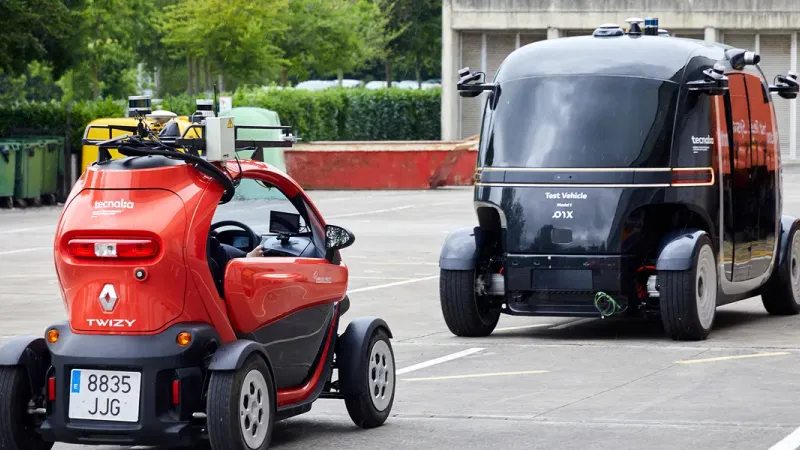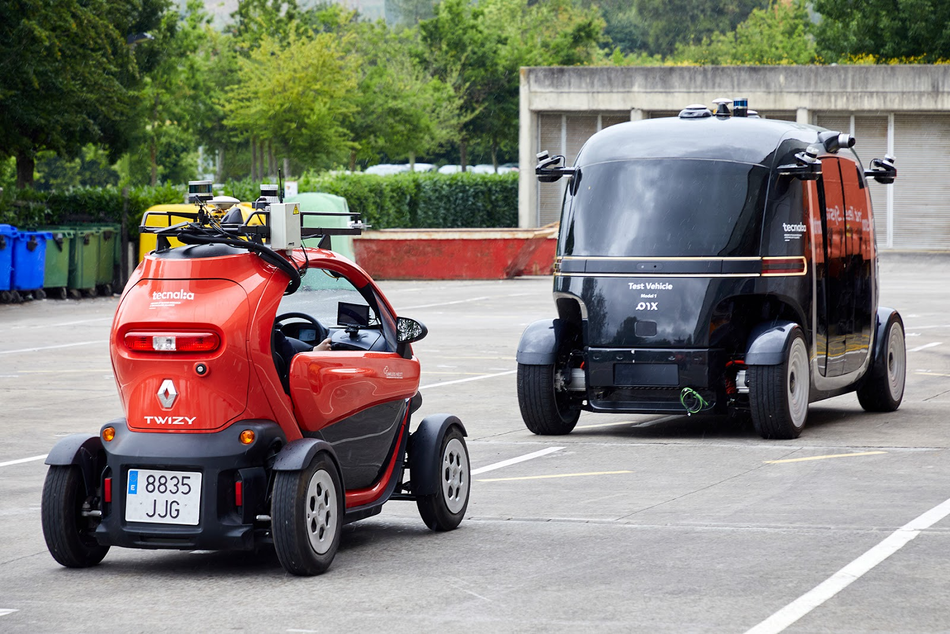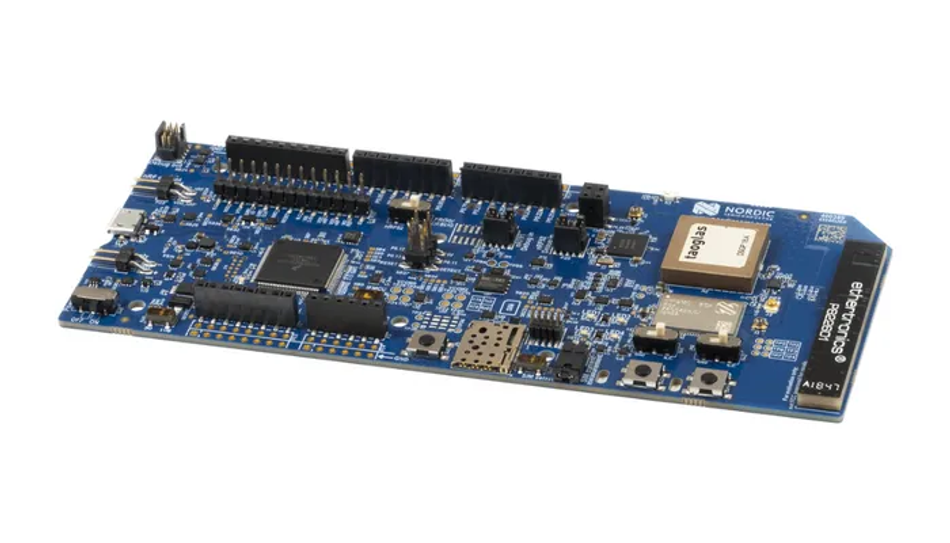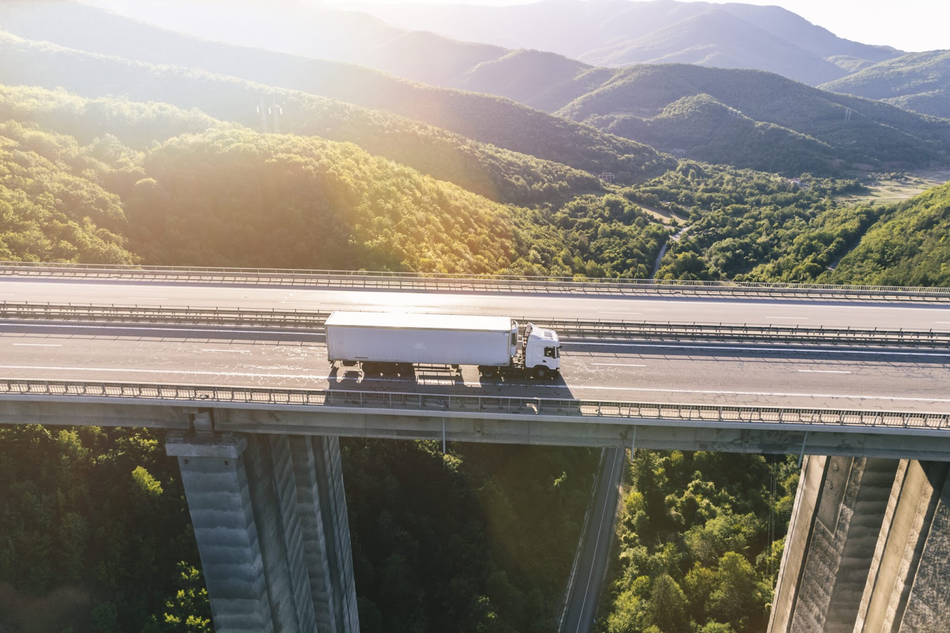Pioneering Greener Logistics: The Impact of Low-Power IoT Solutions
The logistics industry today is grappling with multi-layered challenges, prominently among which is sustainability.
The logistics industry today is grappling with multi-layered challenges, prominently among which is sustainability. Traditional methods of transporting goods, particularly perishable goods, rely heavily on energy-intensive refrigerated cargo trailers, resulting in substantial carbon emissions and operational costs. Researchers at Tecnalia have found a solution that can disrupt this space and overcome this longstanding challenge: their approach is to harness the potential of low-power IoT technology.
In 2023, Mouser Electronics, together with Nordic Semiconductor, Soracom, and Crowd Supply, initiated the Connect for Good Challenge with the goal of enabling innovation for social and environmental good. It rewarded the most innovative low-power wireless solutions aiming to encourage efforts towards achieving the UN’s Sustainable Development Goals (SDGs). The winner was a Tecnalia project led by researcher Iván Arakistain, a technologist and researcher at Tecnalia. It focused on sustainable logistics infrastructure, providing a solution for monitoring and detecting anomalies.
Central to Arakistain's project is the seamless integration of advanced technology and embedded artificial intelligence (AI) to optimize the transport of perishable goods. Through sophisticated monitoring systems and anomaly detection algorithms, the solution ensures the integrity of the cold chain without the reliance on energy-intensive refrigeration. The incorporation of the nRF9160 Development Kit, renowned for its low energy consumption and robust cellular connectivity, underpinned the project's success.
Leveraging Embedded AI
The Tecnalia solution revolves around a smart device connected to the Internet with multiple sensors and GPS capabilities. These features allow for effective monitoring and tracking of items. The core aspect of this solution lies in integrating AI directly into the device. This embedded AI is miniaturized and used within numerous everyday objects. By leveraging this technology, the project enhances the handling of perishable goods, ensuring that their required temperature levels are maintained throughout transportation. Additionally, the device incorporates a specialized sensor akin to an "electronic nose," which monitors, detects, and alerts users to the presence of harmful organic compounds. This functionality serves to identify spoiled food items, offering an added layer of quality control and safety.
This innovative approach sets a new standard for eco-friendly transport in the logistics industry, with far-reaching implications for global sustainability initiatives. Moreover, the project's emphasis on operational efficiency underscores its potential to drive substantial economic benefits for many stakeholders.
Navigating Challenges, Embracing Opportunities
As Arakistain's project gains traction, it is expected to encounter both challenges and opportunities on the path to widespread adoption. Convincing stakeholders to embrace innovative solutions necessitates not only technological prowess but also strategic communication and collaboration. However, initiatives like the Connect for Good Challenge and the innovative projects it sparked serve as catalysts for change, fostering innovation and collaboration in pursuit of a more sustainable future.
In envisioning the future of sustainable logistics, the future course from Arakistain’s point of view team is clear: a shift to electrified transport is a necessity. The logistics industry will continue to evolve, driven by innovation and collaboration, and with a focus on sustainability and climate action, the prospects for a more sustainable future can grow ever brighter. Arakistain's project explicitly addresses the seventh, eleventh, and thirteenth SDGs, which target accessibility to affordable and clean energy, sustainable cities, and climate action. The success of this project stands as a testament to our ability to innovate and effect change, paving the way for more sustainable logistics and inspiring generations to come to embrace the challenge of building a better world.
The path ahead for this solution is laden with both promise and complexity. While the technology demonstrates its efficacy in controlled environments, scaling it across diverse regions and logistics networks presents unique challenges. The logistics industry's heterogeneity and reliance on established practices necessitate careful navigation of regulatory frameworks, infrastructure limitations, and stakeholder engagement.
The Tecnalia team must strike a delicate balance between technological innovation and practical implementation. This involves not only refining the technical aspects of the solution but also addressing logistical, regulatory, and cultural barriers to adoption. Collaborating with industry stakeholders, policymakers, and regulatory bodies becomes imperative to ensure the seamless integration of the technology into existing logistics networks.
Economic Implications, Market Dynamics, & New Applications
Beyond its environmental benefits, this project carries significant economic implications for logistics companies and end-users alike. By reducing reliance on energy-intensive refrigeration and optimizing transportation routes, the solution offers substantial cost savings for stakeholders. In fact, by minimizing the transport of refrigerated cargo, the proposed solution promises a 10% reduction in cost per kilometer and no less than 64 tons of annual carbon emissions per truck. Adopting such eco-friendly transport methods would also enhance brand reputation and market competitiveness, positioning companies as leaders in sustainability.
This Tecnalia project opens doors to new market opportunities and revenue streams. As consumers increasingly prioritize sustainability, companies that embrace eco-friendly practices stand to gain a competitive edge. The technology not only addresses current market demands but also anticipates future trends, positioning stakeholders for long-term success in an evolving industry that is awaiting change.
Furthermore, while this project focuses on revolutionizing cold chain logistics, its impact extends far beyond this niche. The integration of low-power IoT solutions and advanced monitoring systems paves the way for innovation across diverse industries and applications. From structural health monitoring to audio detection and classification, the technology holds promise for addressing a wide range of societal challenges.
The Tecnalia team continues to explore novel applications of their technology, leveraging embedded AI and sensor networks to tackle pressing issues in fields such as infrastructure, healthcare, and environmental monitoring. By harnessing the power of data and connectivity, the project exemplifies the transformative potential of technology in addressing complex global challenges. It represents more than just a technological innovation; it embodies a vision for a more sustainable and interconnected world. By leveraging cutting-edge technology and collaborative partnerships, Arakistain and his team pave the way for a future where logistics is not only efficient but also environmentally responsible.
For more information, check out our interview with Iván Arakistain about his winning project.




